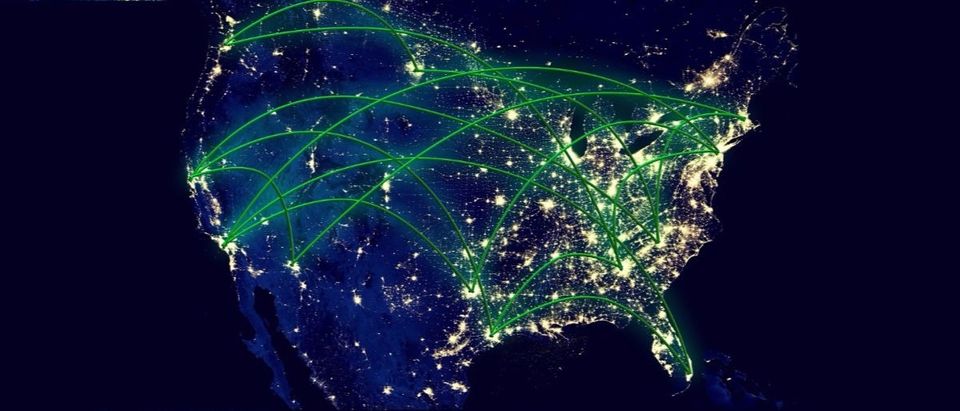While the Federal Communications Commission works to modernize internet regulation, boost investment and spur innovation by replacing the dated utility regime (known as “Title II”) with the more forward-leaning framework that has been in place under both Republican and Democratic administrations, most of the debate has focused on what the rules should be.
But an overlooked yet equally important issue is who should regulate — the FCC by reaffirming a single consistent national framework for internet access, or state and local governments through piecemeal regulation that may conflict from jurisdiction to jurisdiction?
It’s not a new debate. As a former state and federal regulator, I have had the opportunity to see both sides of the state-federal jurisdictional divide. Over the years, I gained an appreciation for the value of a true federalism in which the rights and responsibilities of each level of government are respected.
In practice, this means asking three key questions about the exercise of regulatory power. First, does the text of the relevant law make clear who should regulate? Second, what level of government has the right expertise and connection to the problem to appropriately regulate? And third, what is the practical impact on investment, innovation, and the economy of regulating at different levels?
For broadband, the analysis is quite straightforward. On the textual question, Congress has enacted — because of its interstate and global nature, and the need for seamless connectivity — a comprehensive national framework for federal oversight of our nation’s communications systems which has been repeatedly upheld by the courts.
On localism, like most conservatives, I also usually start with the premise that a smaller government — closest to the people — will govern most effectively. But that instinct for localism must, in some circumstances, obviously make allowances in matters that are quintessentially interstate and require a unified national framework. A good example would be the movement of planes through national airspace.
That leaves us with the third question of economic impact and efficiency. Almost no one disputes that the internet clearly requires unified national regulation to operate. Actions as simple as opening an email or streaming a show involve a complex communications dance between DNS services, content servers, long-haul backbone, content delivery networks, and exchange points, repeatedly crossing multiple state and national boundaries.
In the words of the framers, this is the innately “interstate” province where consistent nationwide rules are needed for networks to operate efficiently. And just as important, the benefits from the FCC’s proposed deregulation will be lost if they are immediately second-guessed and picked apart by the states. Most immediately, the drop in broadband investment seen over the last two years of heavy “Title II”-style regulation — $2.4 billion lost in just the last two years — could accelerate.
The good news is: for all the other debates around the FCC’s Restoring Internet Freedom proposal, a strong reaffirmation of federal primacy should not be controversial. Even the Obama-era FCC decision on the imposition of Title II regulation on the internet correctly recognized the basic point that internet access is an interstate service requiring a consistent national approach.
However, while the comments on the FCC proposal are generally supportive of a clear national framework, a handful of commenters do suggest certain state and localities still itch for a chance to spread their regulatory wings. What the FCC may hope to achieve by reasserting a regulatory “light touch” could be just as easily lost to a steady drumbeat of state and local regulations that undercut the internet freedom proposal itself.
State and local governments have an important — and often primary — role to play in certain aspects of regulation, consumer protection, and public policy. But that reality should not obscure the fact that sometimes not only is a national framework the legally appropriate approach, it is also the one that best advances the public interest. While the FCC is working to create an appropriate broadband regulatory environment, it should not neglect to clearly establish internet access as a national regime, not subject to a slow-moving avalanche of outdates state and local utility regulations not well-suited to the internet age.
Tony Clark is Senior Advisor at Wilkinson Barker Knauer, LLP. He served as a Commissioner of the Federal Energy Regulatory Commission from 2012-2016. From 2001-2012, he was a member of the North Dakota Public Service Commission. He is a former President of the National Association of Regulatory Utility Commissioners and served as Chairman of its Committee on Telecommunications. Wilkinson Barker Knauer serves as regulatory counsel to broadband service providers.












